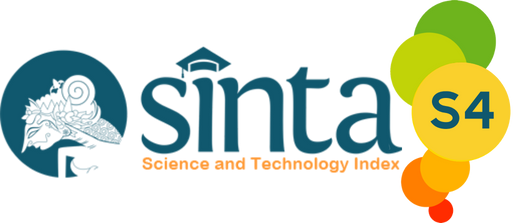The Correlation between Language Learning Strategies and Speaking Achievement of Junior High School Students
DOI:
https://doi.org/10.33369/ijier.v3i1.34107Abstract
The objective of this research was to find out the significant correlation and the influence of their language learning strategies and speaking achievement. This study used quantitative research with a correlation design. The population of this research was 30 students of the eighth grade students of Junior High Schools in Palembang. In this study, the participants were selected using a purposeful random sampling technique. In collecting the data, the researcher used a questionnaire and a speaking test. students’ speaking achievement was scored in terms of the six subskills of grammar, vocabulary, fluency, pronunciation, comprehension, and task. Furthermore, Strategy Inventory for Language Learning (SILL) questionnaire was used to determine students' language learning strategies. Pearson Product-Moment was used to find out the correlation between variables. The result showed that there was a significant correlation between cognitive and speaking achievement with r= (.402) higher than r-table (.361) and the level of probability (p) significance was (.028) which was lower than 0.05. It means that Hα₂ was accepted and H₀₁ was rejected. In this research, language learning strategies gave a 16,8 % contribution to speaking achievement. While a significant correlation between social-affective and speaking achievement with r= (.385) which was higher than r-table (.361) and level of probability (p) significance was (.036) which was lower than 0.05. Meanwhile, social strategies contribute to speaking achievement in 14,8 %.
Keywords: Language Learning Strategies, Speaking Achievement
Downloads
Published
How to Cite
Issue
Section
License

This work is licensed under a Creative Commons Attribution-ShareAlike 4.0 International License.

Ciptaan disebarluaskan di bawah Lisensi Creative Commons Atribusi-BerbagiSerupa 4.0 Internasional.








